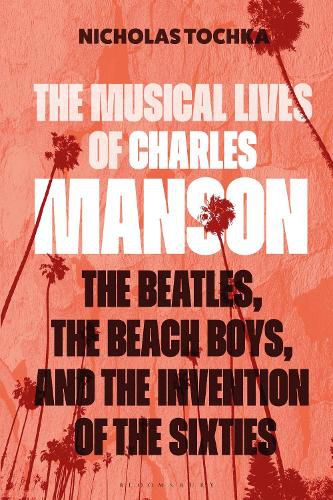Readings Newsletter
Become a Readings Member to make your shopping experience even easier.
Sign in or sign up for free!
You’re not far away from qualifying for FREE standard shipping within Australia
You’ve qualified for FREE standard shipping within Australia
The cart is loading…






Nicholas Tochka analyzes the role of rock music in the life of Charles Manson, the Family, and the August 1969 Tate-LaBianca killings, which also gives larger insight into Sixties counterculture.
Failed singer-songwriter. Devious cult leader, a rock Pied Piper. The product of a sick society. Just another dime-a-dozen singing hippy mystic. Did the guitar-playing guru personify the violence that the rock counterculture had inflicted on American society? Or did his music diagnose the dehumanizing effects of that society's broken institutions?
For nearly five years, commentators debated the meaning of Charles Manson and the Tate-LaBianca killings. The key thread linking these narratives was rock music: from the acid-drenched singalongs at Spahn Ranch, to a bizarre theology centered on Beatles songs, to Manson's own album, LIE: The Love and Terror Cult (1970). "They are afraid of it, because it tells the truth," Manson told an interviewer about his music. What truths did the Manson Family's music tell? And how did stories about their music help Americans understand the true meaning of the Sixties?
$9.00 standard shipping within Australia
FREE standard shipping within Australia for orders over $100.00
Express & International shipping calculated at checkout
Nicholas Tochka analyzes the role of rock music in the life of Charles Manson, the Family, and the August 1969 Tate-LaBianca killings, which also gives larger insight into Sixties counterculture.
Failed singer-songwriter. Devious cult leader, a rock Pied Piper. The product of a sick society. Just another dime-a-dozen singing hippy mystic. Did the guitar-playing guru personify the violence that the rock counterculture had inflicted on American society? Or did his music diagnose the dehumanizing effects of that society's broken institutions?
For nearly five years, commentators debated the meaning of Charles Manson and the Tate-LaBianca killings. The key thread linking these narratives was rock music: from the acid-drenched singalongs at Spahn Ranch, to a bizarre theology centered on Beatles songs, to Manson's own album, LIE: The Love and Terror Cult (1970). "They are afraid of it, because it tells the truth," Manson told an interviewer about his music. What truths did the Manson Family's music tell? And how did stories about their music help Americans understand the true meaning of the Sixties?